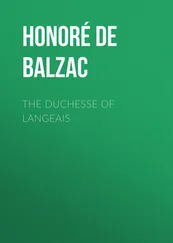Dino Dorothée - Memoirs of the Duchesse De Dino (Afterwards Duchesse de Talleyrand et de Sagan), 1841-1850
Здесь есть возможность читать онлайн «Dino Dorothée - Memoirs of the Duchesse De Dino (Afterwards Duchesse de Talleyrand et de Sagan), 1841-1850» — ознакомительный отрывок электронной книги совершенно бесплатно, а после прочтения отрывка купить полную версию. В некоторых случаях можно слушать аудио, скачать через торрент в формате fb2 и присутствует краткое содержание. Жанр: foreign_antique, foreign_prose, на английском языке. Описание произведения, (предисловие) а так же отзывы посетителей доступны на портале библиотеки ЛибКат.
- Название:Memoirs of the Duchesse De Dino (Afterwards Duchesse de Talleyrand et de Sagan), 1841-1850
- Автор:
- Жанр:
- Год:неизвестен
- ISBN:нет данных
- Рейтинг книги:4 / 5. Голосов: 1
-
Избранное:Добавить в избранное
- Отзывы:
-
Ваша оценка:
- 80
- 1
- 2
- 3
- 4
- 5
Memoirs of the Duchesse De Dino (Afterwards Duchesse de Talleyrand et de Sagan), 1841-1850: краткое содержание, описание и аннотация
Предлагаем к чтению аннотацию, описание, краткое содержание или предисловие (зависит от того, что написал сам автор книги «Memoirs of the Duchesse De Dino (Afterwards Duchesse de Talleyrand et de Sagan), 1841-1850»). Если вы не нашли необходимую информацию о книге — напишите в комментариях, мы постараемся отыскать её.
Memoirs of the Duchesse De Dino (Afterwards Duchesse de Talleyrand et de Sagan), 1841-1850 — читать онлайн ознакомительный отрывок
Ниже представлен текст книги, разбитый по страницам. Система сохранения места последней прочитанной страницы, позволяет с удобством читать онлайн бесплатно книгу «Memoirs of the Duchesse De Dino (Afterwards Duchesse de Talleyrand et de Sagan), 1841-1850», без необходимости каждый раз заново искать на чём Вы остановились. Поставьте закладку, и сможете в любой момент перейти на страницу, на которой закончили чтение.
Интервал:
Закладка:
Metz, May 6, 1841. – I am now far from Paris and regret nothing in it except my daughter, and have no great hopes that my journey will be a relaxation. I dread the annoyance of it and the wearing life of high roads and inns.
Mannheim, May 8, 1841. – I left Metz at midday, after a good rest. I then came on here without stopping, arriving at ten o'clock in the morning. I was not searched at the frontier, but a terrible storm in the night almost made me lose courage. However, I literally made head against the storm, and am now at Mannheim. The inevitable Schreckenstein was waiting for me and wished to take me to the castle where a room was ready for me. I declined, and think that I pleased others as much as myself by so doing. After dressing I called upon the Grand Duchess Stephanie who had placed a carriage at my disposal. She looks better than she did at Umkirch when she was suffering from her terrible illness, but she can hardly move her left arm and remains a little lame. It is whispered that what she considers to be rheumatism is something much more serious; the doctors wish to send her to Wildbad; she talks quite as usual. Princess Marie has grown rather heavy and is somewhat faded, not to any great extent, but there is no prospect that she will marry.
I called upon Baroness Sturmfeder, who is outwardly a great lady, and upon old Walsch, who was beguiling her old age with the Charivari , the Wasps and the Ready Made News , lampoons which are now fashionable; from such sources she derives her ideas and her kindly sentiments. After leaving the castle I was driven to the Duchess Bernard of Saxe Weimar whom I had seen in England; her husband is the loving and beloved uncle of the Duchess d'Orléans. This was a mark of respect upon my part, the more advisable as I am bound to meet them before long at dinner at the castle. I have now returned and am resting until dinner-time, which is at half-past four.
Since leaving Paris I have been reading a great deal, first a novel by Bulwer, Night and Morning ; it is not uninteresting, but not equal to the early works of the same writer; then a short but delightful book, The Letters of the Princesse de Condé , sister of the last Duc de Bourbon, who died in the Temple as a nun. These letters were written in her youth to one who is still living, and of whom she was very fond, and quite unselfishly so. This was M. Ballanche, the friend of Madame Récamier, who published the letters without appearing as the hero of them. They are authentic, marked by simplicity, tenderness and loftiness of thought, full of devotion, delicacy, sentiment, reason and courage, and written at a time and in a society when the author, her style and her sentiments were quite exceptional. The book is most delightful. 24 24 These letters are addressed to M. de La Gervaisais, a young Breton gentleman, an officer of carbineers of Monsieur's regiment. The Princesse de Condé had made his acquaintance in 1786 at Bourbon l'Archambault, where she had been to take the waters, and her feeling for him was both deep and pure.
Finally I have a small work by Lord Jocelyn, now the husband of Fanny Cowper, concerning the English campaign in China. I was attracted by the author's name, but found the book quite uninteresting.
Mannheim, May 9, 1841. – Yesterday I dined with the Grand Duchess, who afterwards showed me over the castle, which I pretended to see for the first time. She told me so many things that I can hardly remember any of them. One point has remained in my mind, the fact that Princess Sophia of Würtemberg, who married the Hereditary Prince of the Low Countries, is on very bad terms with her mother-in-law, who will not even see her son's children. This Queen has introduced the strictest etiquette and an infinite variety of Court dress.
I also learnt that the King of Prussia had passed a law making divorce very difficult in his states. It certainly was scandalously easy to procure; but the Grand Duchess, who was expecting the divorce of Prince Frederick of Prussia, was greatly vexed by this disappointment. The fact is that poor Prince Frederick, whose wife is mad, ought to be provided with some means of breaking so sad a tie. The first use he would make of an opportunity would be to marry Princess Marie.
The Duchess of Weimar told me that her sister, the Dowager Queen of England, 25 25 Queen Adelaide.
had lost the use of one of her lungs and that the other was very delicate. The sight of the Duchess of Weimar reminded me of London, Windsor and the best time of my life. Her likeness to her sister, which extends even to her voice, though this was not their best feature, quite overcame me, as it reminded me of those years that are now so far away.
Mannheim, May 10, 1841. – I am about to leave Mannheim after a very kind reception. The poor Grand Duchess constantly talks of her death, though this does not prevent her making many plans. I wish she could realise her idea of marrying her daughter. She took me for a drive yesterday along a pretty part of the bank of the Rhine. A port has been made at Mannheim which attracts commerce and brings some life to this town where life has long been dormant. On the whole, I think the town preferable to Carlsruhe. I had a letter from my son-in-law written the day after my departure from Paris. Pauline was going on fairly well, though her nerves were still shaken and she was very weak. He also says: "At the Prince's baptism the register was signed in the following order: the King and his family, then the Cardinals, the President and officials of the Chamber of Peers, then the President of the Chamber of Deputies. Then came the turn of M. de Salvandy, the vice-president, who publicly refused to sign on the ground that the Chamber of Deputies should not be represented as inferior to the Cardinals. He wishes to make a public matter of it, which will produce a bad effect, the more so as the Chamber, with reference to the law concerning secondary education, showed itself quite unfavourable to the religious reaction which is obviously in progress; moreover, such susceptibility might easily cause an unpleasant outburst.
Gelnhausen, May 11, 1841. – I travelled faster than I had thought possible, and instead of sleeping at Frankfort as I had intended I went ten leagues further, and am now lodged in a little inn which at any rate is clean; this will allow me to reach Gotha to-morrow without spending part of the night in my carriage. I had lunch at Darmstadt. Frankfort aroused many memories as I passed through it, for it is a town that I have crossed at different times, and in very different circumstances. The first of these was the most important, for at Frankfort I was married. Afterwards I saw my good friend Labouchère there for the first time; he has often reminded me of the incident since.
The Grand Duchess Stephanie has given me a book which has just been published at Stuttgart; obviously the publication was inspired by Austria, for the documents which the book contains seem to me to come from Vienna, and probably from the study of Prince Metternich or its neighbourhood. This little volume contains notes in French by Gentz upon several political questions, all treated in a spirit of great opposition to France. Their publication at this moment and the editor's preface seem to me to show that they have been produced with a purpose. The most interesting part of the book to me is the journal of Gentz kept during his stay at the Prussian headquarters the week before the battle of Jena. He was a close observer and a lively writer, and the result is quite interesting. There are also commentaries upon a correspondence between Mr. Fox and M. de Talleyrand at the time when the peace of Amiens was broken. The book can certainly offer several forms of attraction.
Читать дальшеИнтервал:
Закладка:
Похожие книги на «Memoirs of the Duchesse De Dino (Afterwards Duchesse de Talleyrand et de Sagan), 1841-1850»
Представляем Вашему вниманию похожие книги на «Memoirs of the Duchesse De Dino (Afterwards Duchesse de Talleyrand et de Sagan), 1841-1850» списком для выбора. Мы отобрали схожую по названию и смыслу литературу в надежде предоставить читателям больше вариантов отыскать новые, интересные, ещё непрочитанные произведения.
Обсуждение, отзывы о книге «Memoirs of the Duchesse De Dino (Afterwards Duchesse de Talleyrand et de Sagan), 1841-1850» и просто собственные мнения читателей. Оставьте ваши комментарии, напишите, что Вы думаете о произведении, его смысле или главных героях. Укажите что конкретно понравилось, а что нет, и почему Вы так считаете.












